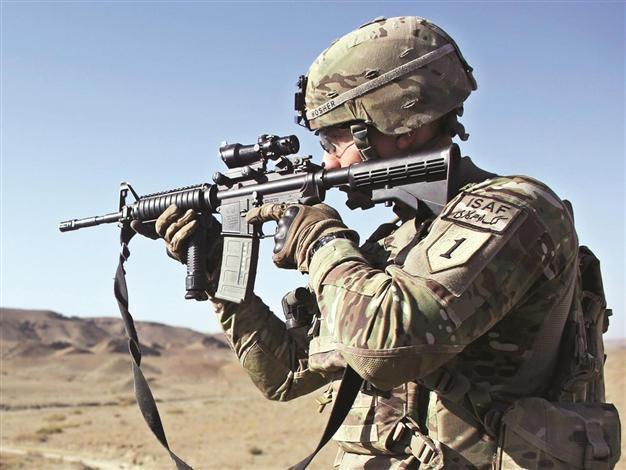US might leave no troops in Afghanistan after end of 2014
WASHINGTON - The Associated Press

A US soldier observes the area with the scope of his rifle in Paktika province, Afghanistan. Last year the US military pulled 23,000 troops out of Afghanistan on President Obama’s orders. REUTERS photo
The Obama administration gave the first explicit signal Jan. 8 that it might leave no troops in Afghanistan after December 2014, an option that defies the Pentagon’s view that thousands of troops may be needed to keep a lid on al-Qaeda and to strengthen Afghan forces.“The U.S. does not have an inherent objective of ’X’ number of troops in Afghanistan,” said Ben Rhodes, a White House deputy national security adviser. “We have an objective of making sure there is no safe haven for al-Qaeda in Afghanistan and making sure that the Afghan government has a security force that is sufficient to ensure the stability of the Afghan government.”
Considering ‘zero’
The U.S. now has 66,000 troops in Afghanistan, down from a peak of about 100,000 as recently as 2010. The U.S. and its NATO allies agreed in November 2010 that they would withdraw all their combat troops by the end of 2014, but they have yet to decide what future missions will be necessary and how many troops they would require. Asked whether zero was now an option, Rhodes said, “That would be an option we would consider.”
His statement could be interpreted as part of an administration negotiating strategy. On Jan. 11, Afghan President Hamid Karzai is scheduled to meet President Barack Obama to discuss ways of framing an enduring partnership beyond 2014. The two are at odds on numerous issues, including a U.S. demand that any American troops who would remain in Afghanistan after the combat mission ends be granted immunity from prosecution under Afghan law. Karzai has resisted, while emphasizing his need for large-scale U.S. support to maintain an effective security force after 2014.
















